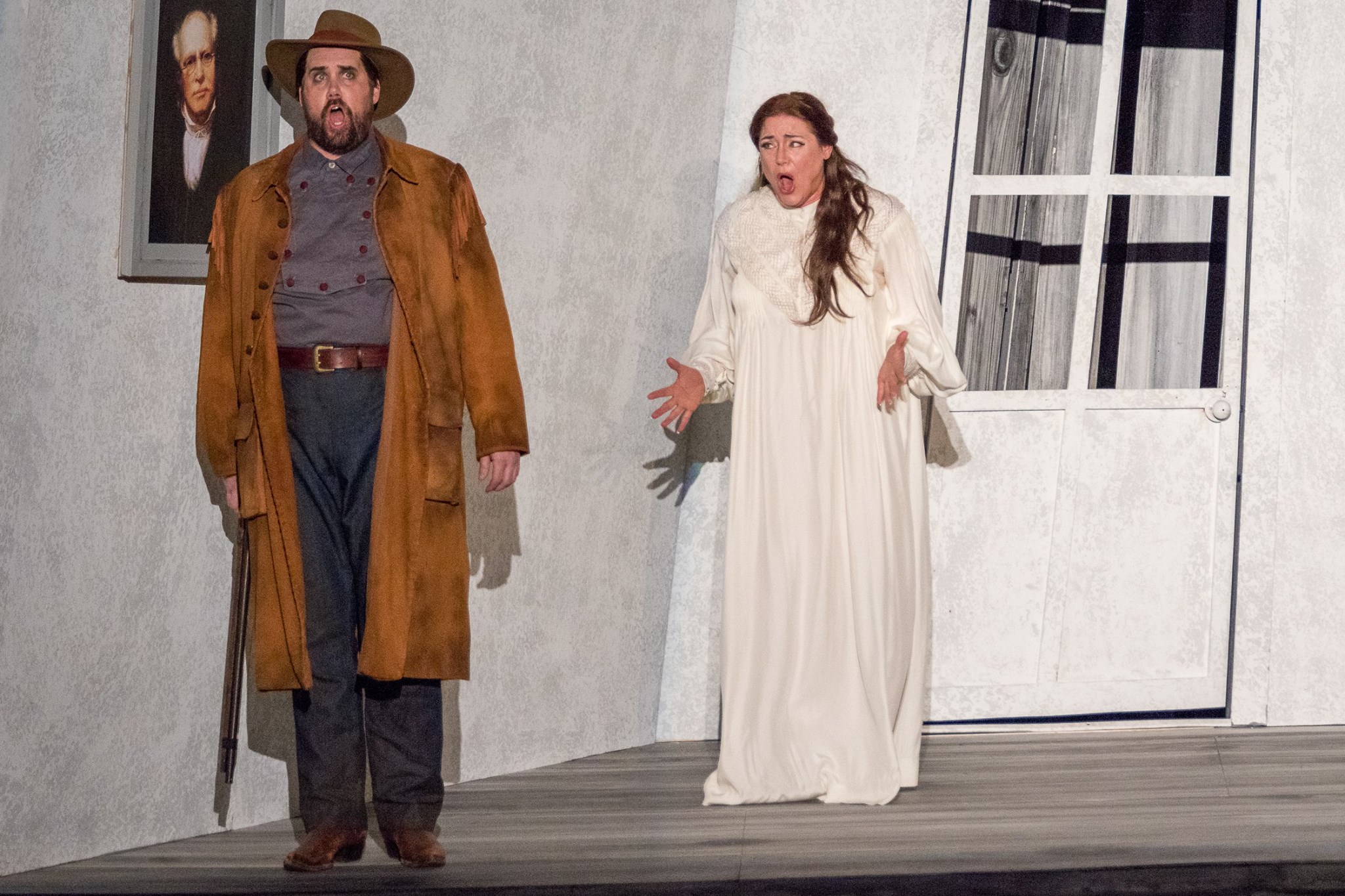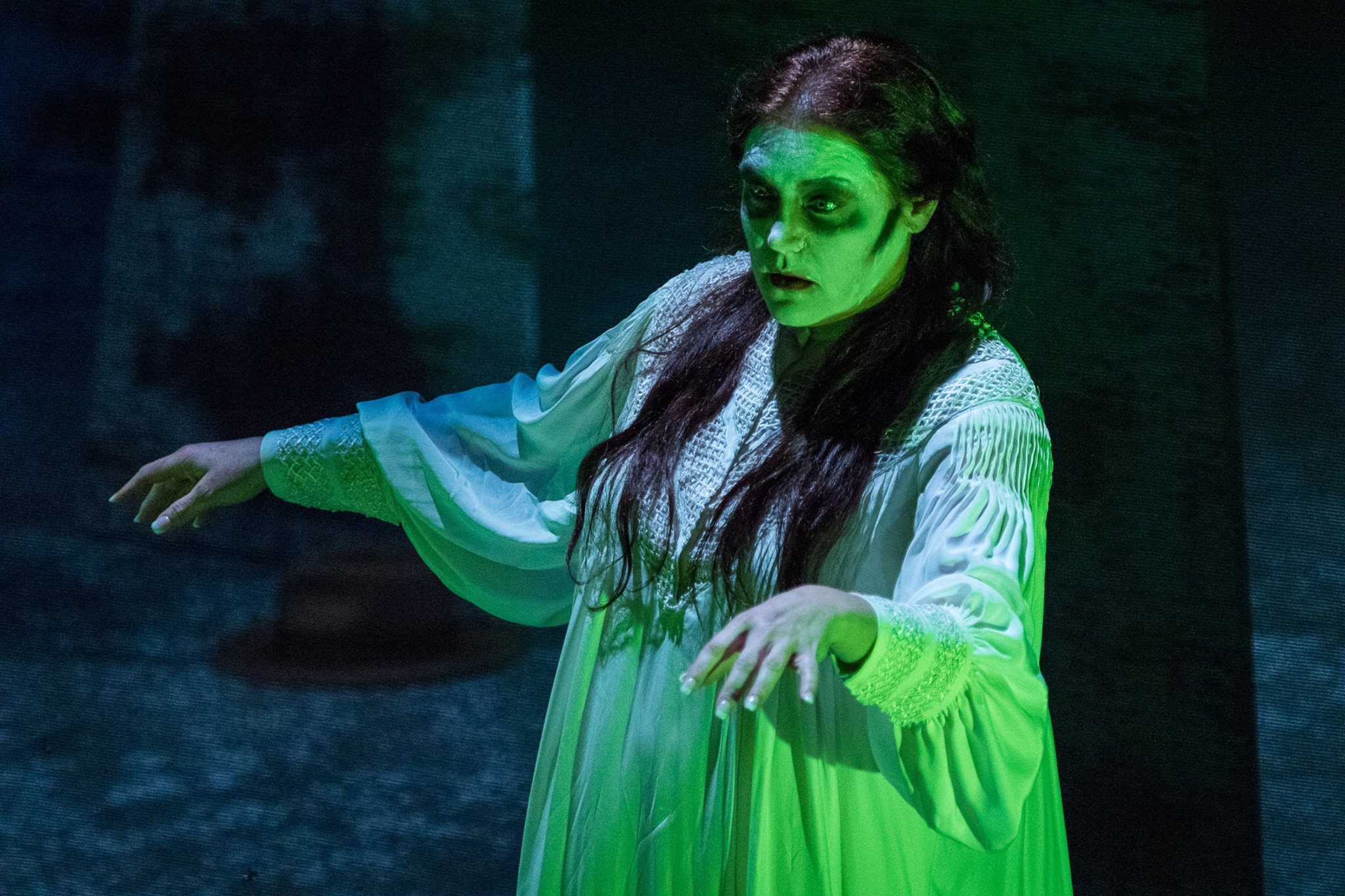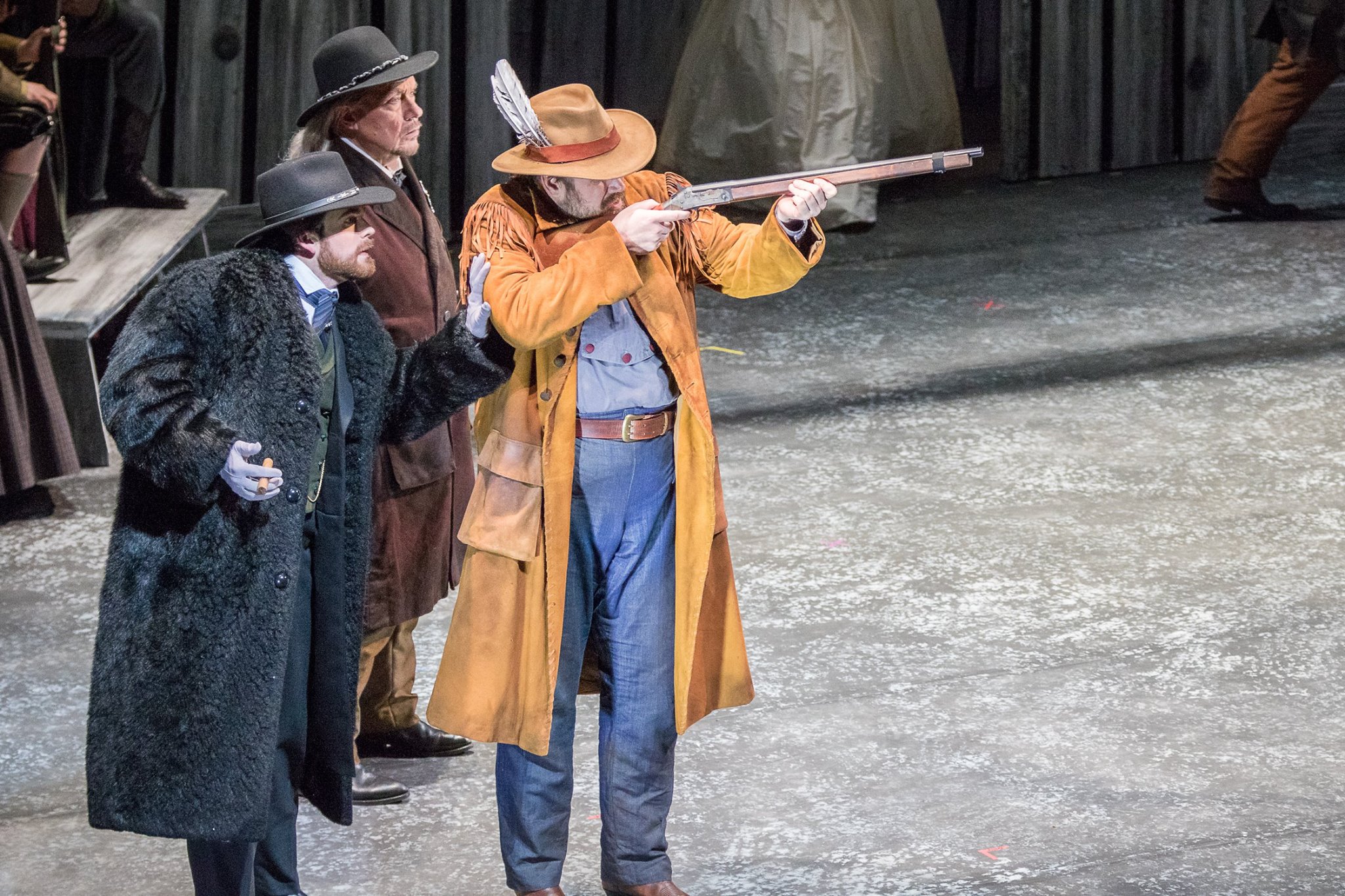Last year I was pleased to see that the Virginia Opera was going to perform Der Freischutz (The Magic Marksman) in their new season, mainly because we do not often get to see this opera in the U.S.. There are at least three perspectives from which to view the opera, each adding to its interest. One is the role of this opera, which premiered in 1821, in German history and the history of opera itself; another is its merit as an opera; and then we must consider Virginia Opera’s staging of it.
Der Freischutz is beloved in Germany and is often performed there. Germans love opera, at least as gaged by statistics. Operabase reports that in the 2015/16 season over three times as many opera performances occurred in Germany as compared to the United States: 6795 versus 1657. Note that the stats are for performances not productions; each production generates about four to five performances. Operabase also reports 66 performances of Der Freischutz from 16 productions in 14 cities in Germany for 2016. Worldwide there were 21 productions, just five outside Germany and none in the US. So, the opportunity to see this opera in the U.S. really is quite rare.
Composer Carl Maria von Weber and librettist Johann Frederich Kind lived in an age when Napoleonic wars had ended and the country lines in Europe were being redrawn and the people in varous regions were seeking to establish their own identity. He decided to write decidedly German operas in the German language using folk themes, following along the lines of German Singspiel. He wanted to change the opera format from that established by Italian opera, with its royal or Greek mythological themes, to reflect German values. German national spirit responded and the opera was immediately a huge success, and Weber’s celebrity across Europe was assured. Weber was also rebelling against Italian opera for other artistic reasons. He wanted to simplify the music and arias to fit the story without the embellishments typical for Italian opera. He is credited with establishing the German Romantic Opera genre.
Photo 1: Max (Corey Bix) is begged by Agathe (Kara Shay Thompson) not to go to Wolf's Glen. Photo 2: Agathe appears as a horrible image to Max in Wolf's Glen. Photo 3: Max in the shooting competition. Photos by Ben Schill Photography; courtesy of Virginia Opera.
Der Freischutz succeeded as an opera because of both its suspenseful story and musical imagery. A young hunter, Max, from the Bohemian countryside is competing to win a shooting competition that will also win him the hand of his beloved Agathe in marriage. Somehow, to everyone's surprise, Max is having a really bad period of shooting and is missing his targets completely; he is in danger of losing the competition with one day to go. Distraught, Max, being led on by Kaspar, agrees to forge a relationship with dark forces to obtain magic bullets that are guaranteed to hit their target. Kaspar hopes that by ensnaring Max, the devil will take Max’s soul in place of his. A highlight of the opera is the phantasmagoric forging of the bullets at midnight in the dark forest of Wolf’s Glen. In the end, the plot is a - boy gets girl, boy screws up and loses girl, then boy gets girl back, or does he? - story.
The first thing to note about the Virginia Opera production is their decision to perform the opera in English. The scene was also moved from Germany to a country village in New England. I was prepared to dislike the opera for these reasons. In this case, and not having heard the opera in German, I think it was a good decision for American audiences. Supertitles were used for sung portions, but not for the spoken sections. The spoken sections In English were very clear and the diction was easy to understand.
The Hermit (Jake Gardner), our holy man, blesses the couple, but there is still unease between them. What will the future hold? Photo by Ben Schill photography; courtesy of Virginia Opera.
The production is not without its flaws from my viewpoint. One has to be willing to suspend disbelief for any story employing magical elements, but Der Freischutz has a few leaps that have to go around corners, like Max’s quick choice to fire the last bullet, though he knew the target for that bullet would be chosen by the devil. I also thought the night in Wolf’s Glen needed some effects with shock value; at least there should have been some good jolts of thunder and lightning. As told, the story could have been better staged, but it was still quite enjoyable. And a holy man wraps up things nicely in the end.
Let’s stay on a positive note and talk about the music and the singing. I was wondering what I was going to hear in this German opera relatively unknown to me. Weber’s music for the opera is beautifully melodic and worth a listen even in recorded version. There are several beautiful arias and much enjoyable choral music. Weber is credited with having influenced his countryman Richard Wagner’s music compositions. His use of musical imagery and especially his use of horns certainly made it possible to believe that he had influenced Wagner. The singers were all proven performers with professional voices, and I thought they sang well, especially soprano Kara Shay Thomson who played heroine, Agathe. In fact for me, the real magic of Der Freischutz is in the music.
Logistical comments: I attended the February 4 performance in Farifax in the George Mason University Performing Arts Center. Price range for tickets were from $54 to $110. I decided to sit in the cheap seats which were the last several rows of the balcony. I bought my ticket at the box office which saved about $7 in handling and convenience fees over buying online. I thought the seats were fine. The stage did seem noticeably far away and reading expressions on faces was not so easy, but the view was clear. I could read the supertitles fine. The volume of the music seemed about right, and the clarity of the spoken sections was amazingly clear at that distance. If the price of opera is a consideration for you, do not hesitate to attend and sit in the cheap seats at the George Mason Center.
Der Freischutz is scheduled for two more performances, both at the Carpenter Theater in Richmond, VA, on Feb 17 and 19. I have attended opera in the Carpenter and I suspect the cheap seats there are fine also, but always check to make sure the view is unobstructed. Click here to find tickets. It is well worth arriving an hour early to hear Dr. Glenn Winters' discussion of the opera.





